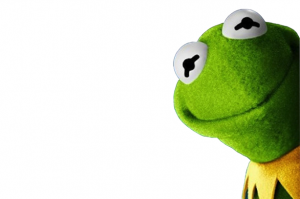Veronica Mars
(dir. Rob Thomas)
The main excuse for the Veronica Mars movie not really being a movie seems to be that creator-writer-director Rob Thomas was limited by the need to satisfy every one of the 90,000 fans that donated money to help finance the movie’s production. But television writers responding to viewer feedback has been a major part of the medium since at least Aaron Sorkin’s dabbling in internet comments while writing The West Wing, and hasn’t been revolutionized by Kickstarter. All this might be is further (to add to the already endless) proof that it doesn’t matter how much money is available if the creative in charge doesn’t have anything worth putting across.
Thomas, not seeming to consider that fans have grown up 10 years since the show premiered, drags Veronica (Kristen Bell) and friends back to a high school reunion, back to a sloppy murder mystery, and, in the worst of his decisions, into a movie. Removed from its week-to-week ability to change, react, and develop plot threads and running jokes that may or may not be working, Veronica Mars is behind on arrival, looks less tech-savvy than an average thriller like Non-Stop, falls flat with every pop culture reference (don’t even ask about the whipped-up-in-60-seconds imitation pop singer), and struggles to pace itself over a feature running time.
Scenes do not play out so much as information is relayed, and the cast, sometimes even including Bell, is listless and invisible. “Look at us, falling back into our old rhythms,” one character cheerfully opines, but what becomes clearer and clearer as stop-gap plot measures like fist fights and car accidents pile up (the movie is an awkward mash-up of a series premiere and a season finale) is that Thomas doesn’t have a new way forward or a good memory of how things used to work, at least when they worked well.
With supposed free rein, Thomas merely plants a camera around a similar neighbourhood instead of trying to imagine what people always say the best shows and movies can support: lives beyond what the episodes capture. What’s worse, the new developments on display are of a character giving up their life’s promise to set up shop in a sub-par television show. It’s settling, and it shows Thomas to be an opportunist with nothing to say.
Muppets Most Wanted
(dir. James Bobin)
Somewhere along the way, Muppet movies became tasked with the burden of Sesame Street — to teach (usually something about family) and delight — when Jim Henson, Frank Oz et al. had originally intended them for more destructive ends. Tearing down the boring format of late night talk shows, Kermit the Frog managed a frenetic non-stop talkback session, with musical numbers and a celebrity guest.
Second-generation Muppet writers James Bobin, Nicholas Stoller, and Bret McKenzie adjust matters a little closer in that direction from the cynically advertising-marketed first Muppets reboot with Muppets Most Wanted, which addresses fan appreciation better than Jason Segal’s openhearted nonsense ever did (the highlight being the return of America’s most morally unobjectionable singing couple). Most closely resembling The Muppets Take Manhattan (in which the Muppets try to make it big, but Kermit gets amnesia, and featured the iconic image of everyone’s favourite frog crushed under the bumper of a New York taxi), Most Wanted relegates its human stars, mostly hailing from television, to supporting roles. Ricky Gervais is well-cast as a slimy villain, while Ty Burrell and Tina Fey hit and miss with accents and the odd song that seems better sequenced for the movie’s soundtrack album.
The plot, concerning crown jewels and train compartments, unintentionally addresses the most distracting feature of the new Muppets (different voices), while neatly sectioning the movie into thirds. McKenzie’s songs target that kind of obviousness, and at times their humour relies on calling attention to convention, as if that alone takes care of any perceived faults, but there’s some savage parody of disco sleaze and epic quests that stands up to the old sketches.
Most Wanted, though it exists in a world where just putting on The Muppet Show appears to be impossibly quaint, at least appreciates the Muppets for the unique spirit they bring, instead of feeling the need to constantly sell them.




